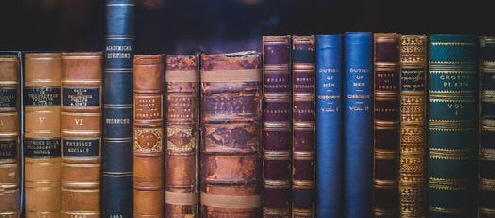About Sabbath Seminars - Our History
Sabbath Seminars meets every Saturday morning for 2 hours of intense discussion of a usually formal presentation. Significantly, Sabbath Seminars are affiliated with a university that embodies twin aspects of Adventism—education and health care—that compel Loma Linda to confront mainstream culture. LLU, whose motto is to extend the teaching and healing ministry of Jesus, has thousands of students and employees who through its medical center and hospitals encounter hundreds of thousands of patients each year. It would be unusual if the juxtaposition of higher education and gaping human need didn’t result in significant probing of life’s big questions.
Sabbath Seminars began in the mid-1970s in LLU religion professor Dalton Baldwin’s home. By 1979 Baldwin’s group had merged with a new class begun by another religion professor, Wilbur Alexander, who desired a more “spiritual” class than what Baldwin was offering—and most importantly, was an alternative to the two most popular religion teachers’ (Graham Maxwell’s and Jack Provonsha’s) Sabbath School classes. Sabbath Seminars, initially meeting in the boardroom of LLU’s medical center, had an attendance of some 20 persons. The class was characterized by provocative presentations, open discussion, and more democratic participation than the classes at which Maxwell and Provonsha would lecture to 100-150 attendees, but with limited and gentle discussion.
From its beginning the Sabbath Seminars attracted some of the most inquiring minds in the Loma Linda area. By the early ‘90s the group made a decision to replace the denominationally produced “Sabbath School Quarterly” with discussions of religious books—most often in the area of science and religion. The current leader of the group is Jim Walters, an LLU religion professor; for many years Jim shared the moderation of the group with Dennis Hokama, a retired public school educator, who drove from 50-mile-distant Los Angeles each week because of the uniqueness of the class. “Until I found this class,” commented Dennis, “I didn’t realize that one need not choose between intellectual integrity and church involvement.” Health setbacks haven’t kept Dennis from continuing to participate on Zoom.
LLU religion professors have always been involved in leadership, with Professors David Larson and Richard Rice as earlier class leaders. The class has a relatively stable membership, with an average attendance of 30-40, and twice as many on the mailing list. Most attendees are professional people, coming from such fields as medicine, law, theology, art, psychotherapy, allied health, nursing, basic science, social science, and literature. Often class members are well-read outside their fields of professional expertise, as witnessed by the late David Wilbur, MD (oncology), PhD (biophysics), who has written his own book on religion, Power and Illusion: Religion and Human Need. Class members themselves make about half of the weekly presentations, the other half given by invited guests – often religion professors from area schools.
Several years ago the class went from the traditional one-hour length of a Sabbath School to two hours, 10:30 a.m. to 12:30, allowing attendance at the university church’s early service. Typically, a written analysis of the morning’s book chapter is presented, with copies distributed to all. Because of the ever-present interest in discussion of any topic and sometimes domination by a few, “rules of engagement” evolved to allow fair, orderly dialogue. Now, after a presentation, a list is made of those wanting to comment. Listed individuals may speak for three minutes, with the presenter responding as desired. Then, if there is interest, class members/attendees may further the discussion thread by making one-minute comments. Further discussion is sometimes carried on at the class’s website, sabbathseminars.com, where the weekly formal presentations are available.
Books are selected by the class, and recent titles—beyond science and religion books—are representative of diversity: Ann Taves’ Fits, Trances, and Visions; Jim Holt’s Why Does the World Exist?; and Israel Finkelstein and Neil Asher Silberman’s The Bible Unearthed. Sometimes authors of considered books are invited, as are other campus lecturers. Over the years these thinkers have included: John B. Cobb, Jr., Langdon Gilkey, Robert L. Piccione, James M. Robinson, Hugh Ross, Michael Shermer, Huston Smith and John Howard Yoder.
The class went to Zoom during Covid, and spawned a new Sabbath Seminars Adventist Today class before it returned to its local format, but the online format permitted those unable to attend, especially members that are now homebound, and those who live far away, to participate as well.
During the Covid “recess” Sabbath Seminars advanced its already democratic approach, beginning with participation in a survey monkey, then creating task teams who have addressed the class mission and vision - see our mission statement here; to write and lead a class liturgy each week and care for the members’ spiritual needs; to select book and topical material, and to plan fellowship and social activities. As the class continues to meet in Covid we maintai(n a hybrid format, with both in-class (please honor our commitment to full vaccination, current booster and masks) and Zoom participation!
Sabbath Seminars

Room 3208
Centennial Complex of Loma Linda University Sabbath Morning 10:30-12:30